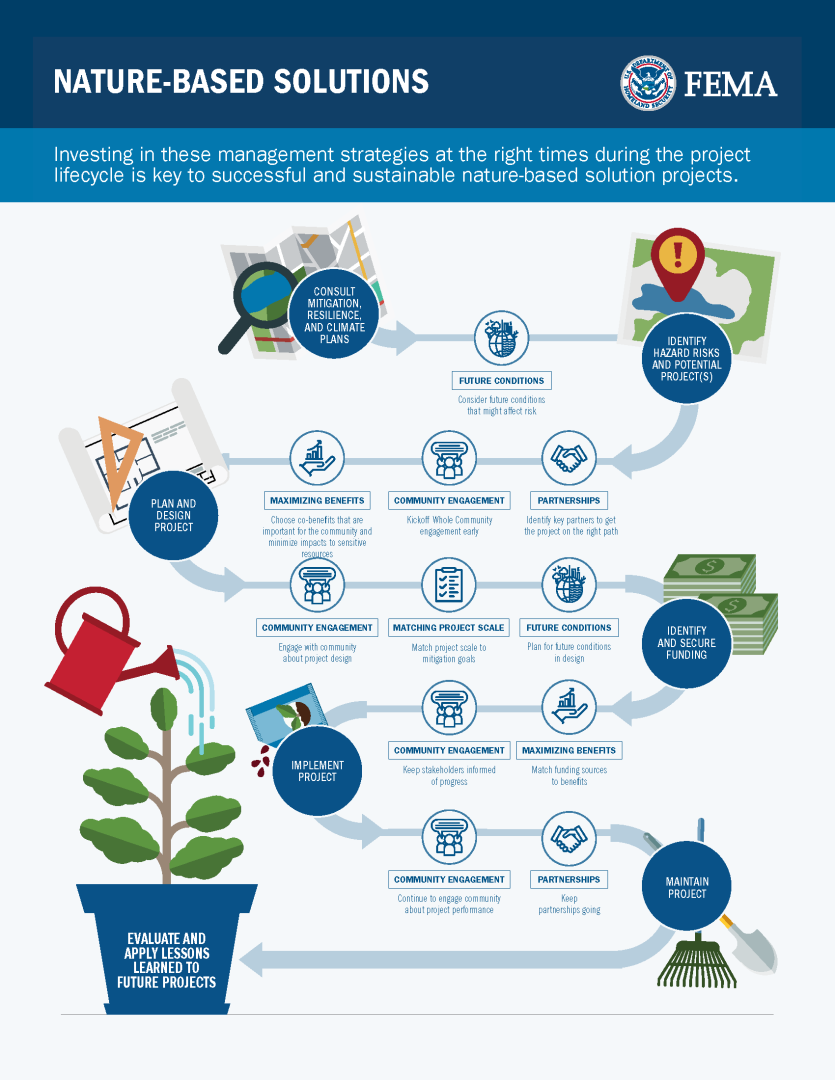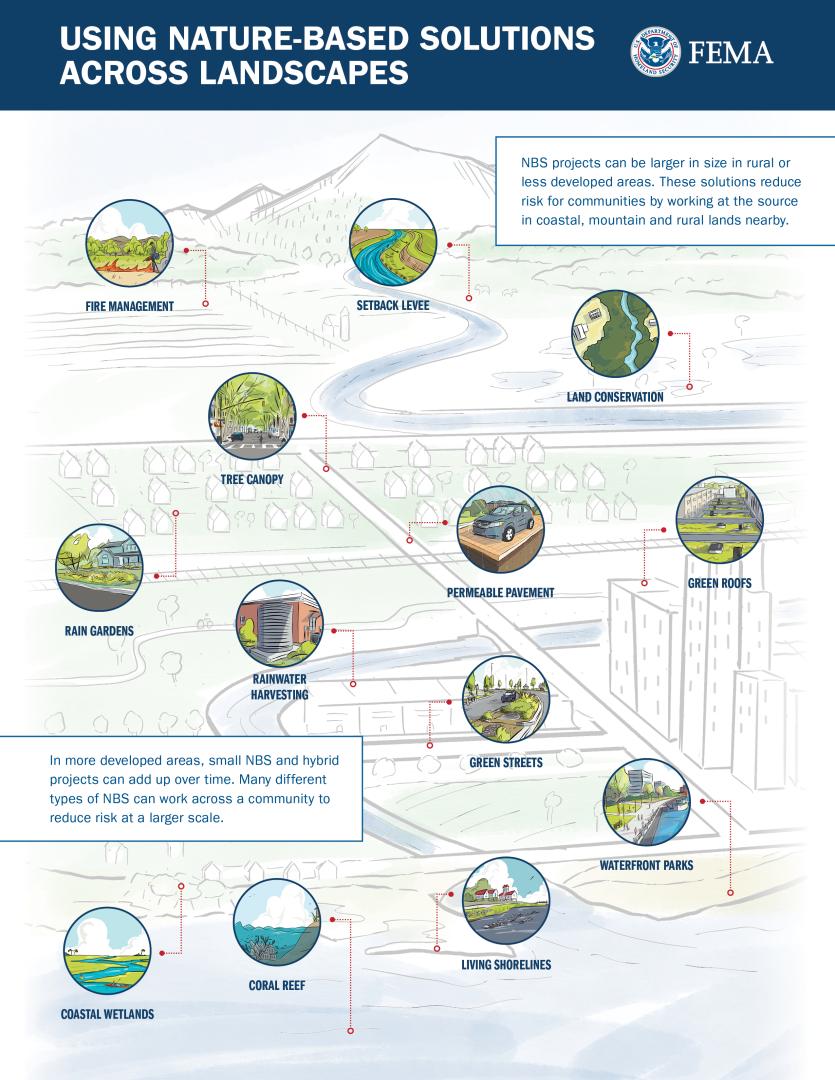Building nature-based solutions requires collaboration among governmental and non-governmental organizations. The departments that may need to be involved include, but are not limited to:
- Parks and Recreation
- Public Works
- Planning and Economic Development
- Environmental Protection
- Utilities
- Transportation
- Floodplain Administration
- Emergency Management
Non-governmental partners like civic associations, watershed groups and nonprofits also add value to the planning process.
Mitigation Planning
FEMA’s hazard mitigation assistance programs provide grants to eligible state, local, tribal, and territorial partners to reduce risk from many hazards. In some cases, an approved mitigation plan is required to apply for and receive certain FEMA non-emergency assistance.

Learn more about mitigation planning and the requirements for applying to certain types of grants.
Infographics

Timeline for Investing in Nature-Based Solutions Strategies
Investing in these management strategies at the right times during the project lifecycle is key to successful and sustainable nature-based solution projects.

Using Nature-Based Solutions Across Landscapes
Many different types of NBS can work across a community to reduce risk at a larger scale. NBS projects can be larger in size in rural or less developed areas. These solutions reduce risk for communities by working at the source in coastal, mountain and rural lands nearby.
Environmental and Historic Preservation Compliance
Like any other project, nature-based solutions must comply with local, state and federal environmental and historic preservation laws, executive orders and regulations.
Contact environmental and historic preservation authorities early in the design phase of your project so they can help identify benefits and limitations. This step should avoid delays in applying your nature-based solution.

Learn more about the environmental and historic preservation review process.

